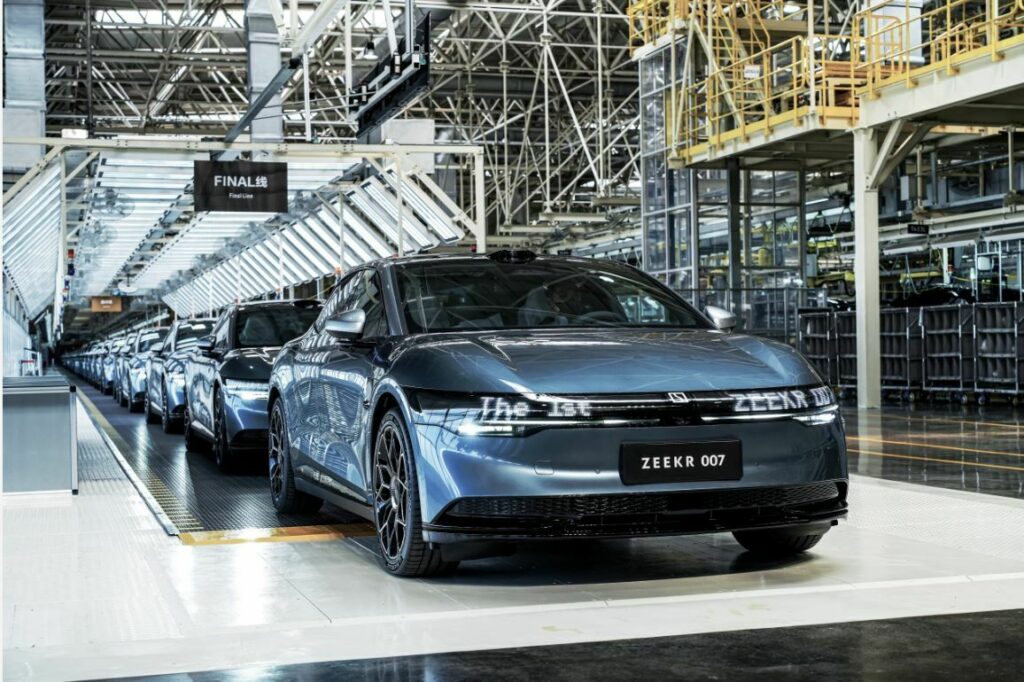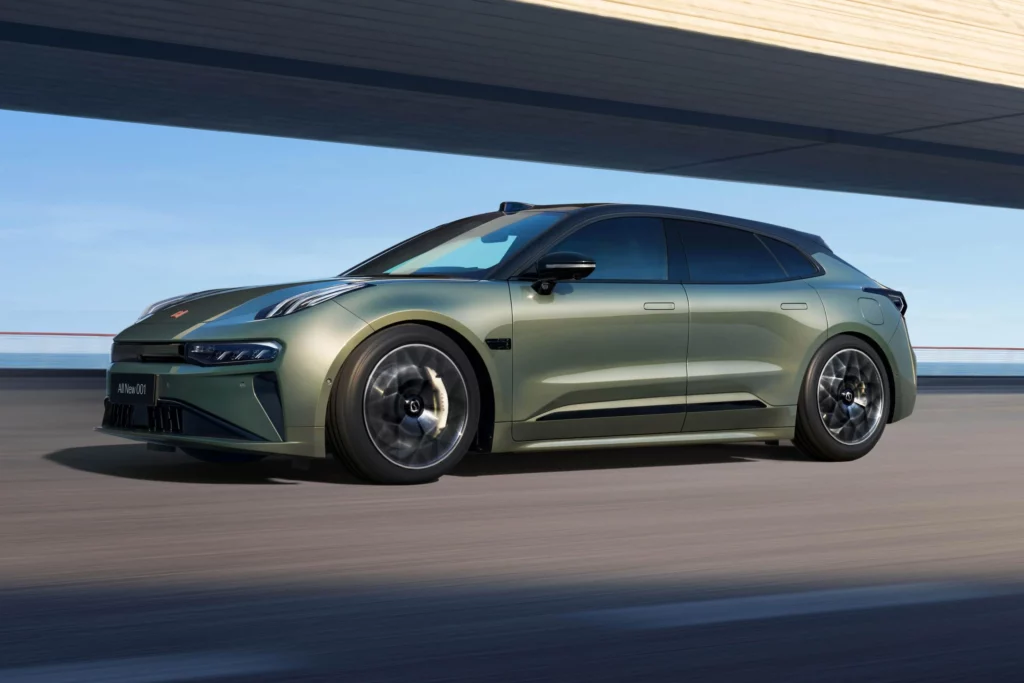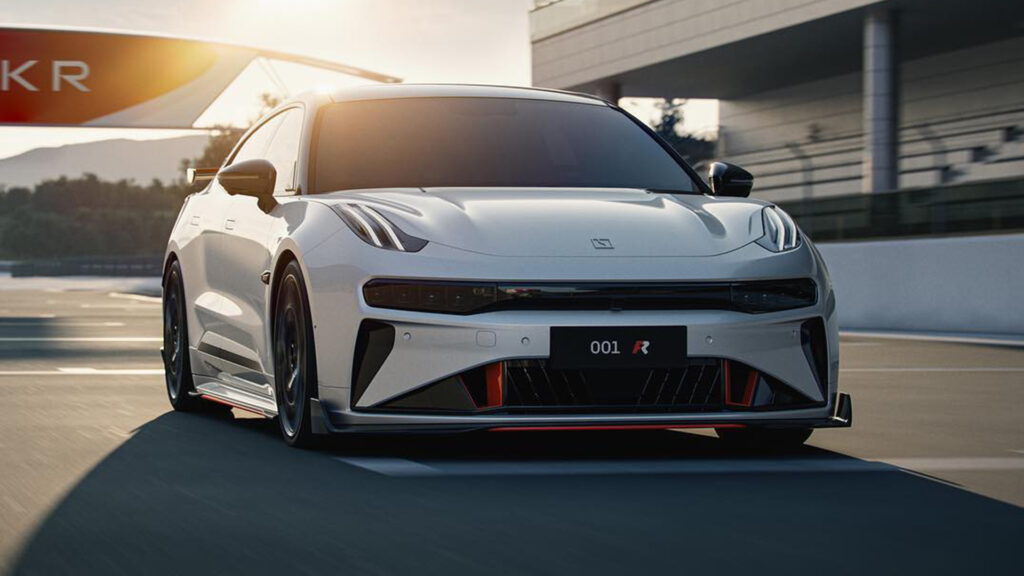- Zeekr has no plans to sell its compelling battery-electric vehicles in the U.S.
- The carmaker will use funds from its IPO to develop future EV technologies.
- 21 million American depository shares were available through the firm’s IPO.
Chinese car manufacturer Zeekr went public on the New York Stock Exchange late last week and like many other EV companies to go public in recent years, its share price jumped considerably once trading started.
Zeekr sold 21 million American depository shares at a price between $18 and $21 apiece for the IPO, raising $441 million. Prices quickly jumped on Friday and Monday, reaching as high as $31.08. At the time of writing, they had since slipped slightly to $29.04. Fortune says that at close on Friday, the carmaker’s valuation hit more than $6.8 billion.
Read: Zeekr 009 Grand Is A Minivan Palace That Does 0-62 In 3.9 Seconds
“The capital markets in New York are very favorable for new energy vehicles,” Geely president Conghui An said after the IPO. “Zeekr is a global brand, and choosing to list in New York further demonstrates its global capabilities.”
The company says it will use the proceeds from its IPO to develop more advanced battery-electric vehicle technologies while also expanding its service and charging network.

While Zeekr is now trading on the NYSE, it has no plans to sell its electric vehicles in the U.S. Even if it wants to sell its cars locally in the future, doing so won’t be easy, given that President Joe Biden is planning to impose a near 100% tariff on Chinese electric vehicles. This tariff would be four times higher than the previous 25% tariff and discourage Chinese automakers from selling their BEVs stateside. The only option for those who want to expand in the U.S. will be to build their vehicles in Mexico and then import them.
Zeekr’s IPO comes a couple of months after it unveiled its latest model, the all-electric Mix minivan. This vehicle will serve as a direct rival to the VW ID.Buzz and is based on Geely’s Sustainable Experience Architecture platform. It’s expected to hit the market with an 86 kWh battery pack that’s capable of charging at up to 360 kW.




